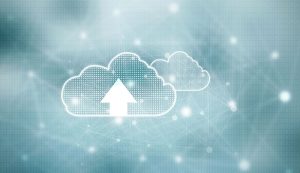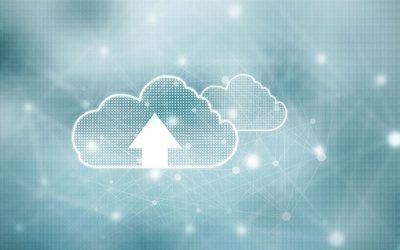The average carbon footprint of an American citizen is about 20 metric tons in a single year. That weight is the equivalent of nearly nine Range Rovers. If one American Citizen produces a carbon footprint the size of a fleet of Range Rovers, imagine the entire carbon footprint of your manufacturing company as a whole. From the people to the production facility to logistics and procurement, it’s a daunting thought exercise.
Making the human way of living more sustainable is a big ask that every single company, government, and person contributes to in either reducing or growing our global carbon footprint. The first step in becoming more sustainable is much more than a feel-good ethos for manufacturers, it’s an exercise in shining a light on the dark data that propels and unlocks the mystery around the physical and financial waste within an organization. Becoming a more sustainability-minded organization means harnessing the incredible potential for transforming how manufacturers do business and drive new and greater revenue returns.
Through Salesforce’s Sustainability Cloud, manufacturers can open up hidden revenue plays and leverage carbon footprint insights to allocate resources in a smarter, greener way.
Why: Revenue rewards for becoming sustainability-driven
Many organizations are doubling down on mandates, be it old or newly conceived, to be as eco-friendly as possible. Ultimately, for true change and momentum to take place there must be a clear and present financial incentive to move away from the status quo and take the first step to a Green future. Simplus has experience partnering with manufacturers who are starting down this road, and there are a few revenue-boosting benefits organizations can realize.
Tax Benefits
Companies that prove they are aware of, tracking, and working to improve their carbon footprint with hard data are given tax breaks both federally and locally.
Customer Loyalty
2020 accelerated a trend that was years in the making—customers pick companies they feel align with them morally. They want to feel the businesses they work with share some core values with them before agreeing to the deal. Increasingly, sustainability is one such value that can win you long-lasting customer relationships.
Recruiting
Similarly, not only will your customers notice and reward you for sincere sustainability initiatives, but your prospective employees will, too. Recruiting fresh talent—currently a hot topic for the manufacturing industry in particular—can be made easier if you have the data dashboards to support new recruits and their climate-conscious values.
How: The data that makes Sustainability Cloud work
Now that we understand the big “why?”—the value-add of leveraging Sustainability Cloud—let’s take a closer look at the mechanics of how it works. What data and features feed the powerful insights Sustainability Cloud promises?
It’s essential to understand that Sustainability Cloud uses specific objects and relationships to function. At the highest level, it’s organized by “organization assets.” This can be anything from buildings and vehicles to an entire complex or travel expense. And admins can create parent-child organization assets at this level if the organization would like to identify multiple buildings that are all part of one greater complex. Anything that outputs CO2 can be listed at this top organizational level.
Next, there is a “carbon footprint” object attached to each organization asset. These are flexible objects that can capture energy consumption based on a variety of factors: natural gas, electricity, cooling, diesel, fuel oil, heat, propane, steam, etc. You can also customize the units involved, kwh, mwh, therms, mmbtu, kcal, and so on. These fields depend on another object—“energy use records”—being tied to them.
Now energy use records come in many forms, but essentially it’s your organization’s way of tying the energy bill to the asset that used that energy. One record may be for air travel of a certain individual at one building, and another energy use record may be for the gas consumed by a data center facility for the month of February. Fleet vehicles, commercial buildings, ground travel, hotel stays, rental cars… all of these come with possibilities to turn their data into energy use records so you can start seeing the bigger picture of your energy consumption more comprehensively. Salesforce pulls emission factor conversions that are provided by various government and regional agencies to take consumption values and turn them into a carbon footprint understanding.
Finally, because of the seamless flexibility built-in throughout Sustainability Cloud, it’s always possible to add more emission factors or other usages that aren’t necessarily standard when using the cloud straight away. The relationships and data your company utilizes can be custom-built into the Sustainability Cloud functionality and still deliver high-value insights into what buildings, individuals, or vehicles are using the most energy. The dashboards and reporting that come with Sustainability Cloud are where you’ll really start to see the benefits, as you drill down into the details of energy consumption throughout your organization. This can help you re-allocate resources, trim down on excess wherever possible, and save your business unnecessary costs.
Sustainability Cloud is a powerful way to turn your manufacturing company into a more data-driven organization, fueled by real-time insights and able to pivot for any sudden circumstances. As one of the first Salesforce implementation partners to stand up Sustainability Cloud for a manufacturer, Simplus knows how to create a comprehensive, seamless integration of the data sources your particular company needs. Reach out today to get started connecting your data, becoming greener, and realizing more revenue.














0 Comments